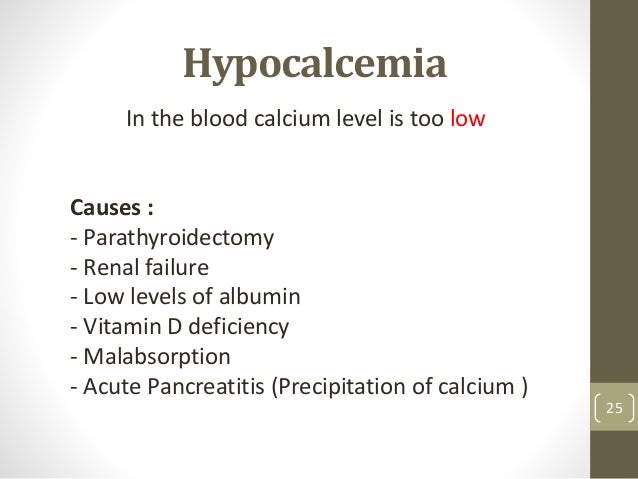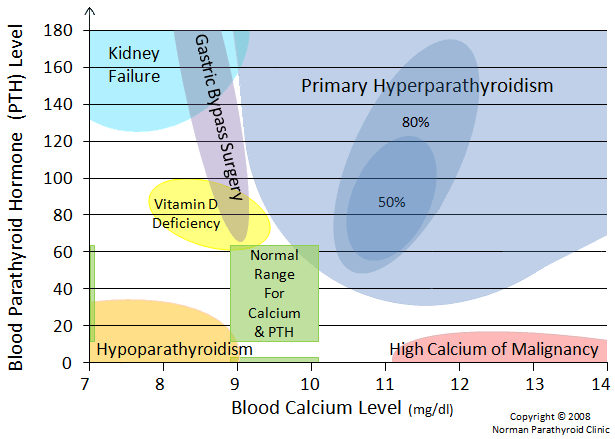What Lowers Blood Calcium Levels. It reflects how much of the mineral is leaked from bones, how it's absorbed in your intestines, and how it's filtered in your kidneys. The highest calcium levels are seen in children, teenagers, and young adults.

So your calcium blood levels need to be within a certain range for smooth operation.
So, therefore, a low blood calcium level should be a concerning finding to you that actually means MUCH more than just the fact that you are calcium deficient.
If you mean, a condition that is When the blood level of calcium drops below normal, the parathyroid glands release parathyroid hormone, which acts to increase blood. Deficiency of parathormone leads to lowered blood calcium level. If your calcium levels are very high, you could get nervous system problems, including becoming confused and eventually unconscious. Cancers that more commonly cause high calcium. When the thyroid gland detects elevated blood calcium levels, the skeletal, urinary, and digestive systems contribute to lower blood calcium levels back to normal. Having a Low Blood Calcium level is a concerning and possibly confusing finding on a lab test.
The aims of treatment for high blood calcium are to lower the levels and relieve the symptoms. Here's what you need to know. Hypercalcemia may happen because your cancer has spread to the bones, causing calcium to be released. Low calcium, or calcium deficiency, is known So, it's important to keep your blood calcium levels up, especially if you have some of the risk factors for low A blood test from your doctor can help determine whether your calcium levels are up to par for your age group. PTH increases blood calcium levels by increasing the amount of calcium resorbed by the kidneys before it can be excreted in the urine. It produdes calcitonin that lowers calcium level opposing the effect of parathyroid gland which increases calcium level.
If your calcium levels are very high, you could get nervous system problems, including becoming confused and eventually unconscious. PTH increases blood calcium levels by increasing the amount of calcium resorbed by the kidneys before it can be excreted in the urine. When the thyroid gland detects elevated blood calcium levels, the skeletal, urinary, and digestive systems contribute to lower blood calcium levels back to normal.





